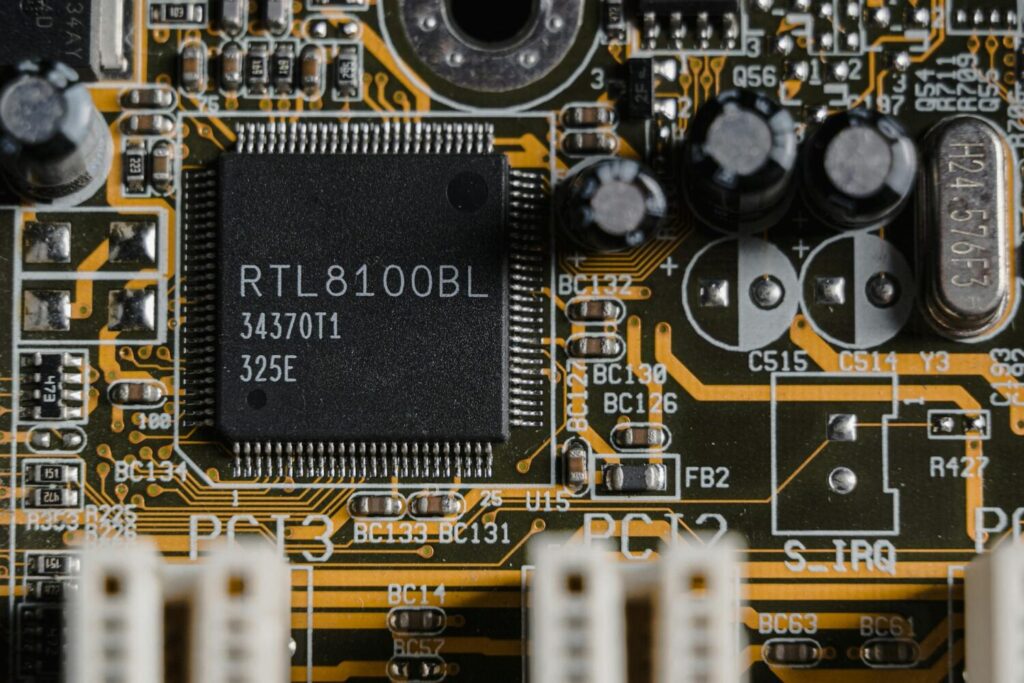The initial public offering (IPO) of GNG Electronics, India’s largest refurbisher of laptops and desktops, has garnered significant investor interest, achieving an oversubscription of 8.99 times on its first day of bidding on July 23, 2025. The ₹460.43 crore IPO, which opened for subscription from July 23 to July 25, 2025, saw robust demand, particularly from non-institutional investors (NIIs) at 18.85 times, followed by retail individual investors (RIIs) at 8.89 times, and qualified institutional buyers (QIBs) at 1.68 times.
This article explores the history of GNG Electronics, its founder, the number of shares an investor can purchase for ₹1 lakh, and the company’s growth potential over the next decade.
GNG Electronics IPO: A Snapshot
The GNG Electronics IPO comprises a fresh issue of ₹400 crore and an offer for sale (OFS) of 25.5 lakh equity shares worth ₹60.44 crore by promoters. The price band is set at ₹225–₹237 per share, with a minimum lot size of 63 shares. The company raised ₹138.13 crore from anchor investors, including prominent names like Goldman Sachs, Motilal Oswal Mutual Fund, and Mirae Asset, before the public subscription.

The IPO is set to list on the BSE and NSE on July 30, 2025, with allotment expected by July 28, 2025. The grey market premium (GMP) of ₹105 suggests a potential listing price of around ₹342, indicating a 44.3% gain over the upper price band.
History of GNG Electronics
Founded in 2006, GNG Electronics Limited, operating under the brand “Electronics Bazaar,” has established itself as India’s leading refurbisher of laptops and desktops and a prominent global player in information and communication technology (ICT) device refurbishment. The Mumbai-based company specializes in end-to-end solutions, from sourcing and refurbishing used devices like laptops, desktops, tablets, servers, and mobile workstations to providing after-sales services and warranties.
As of March 31, 2025, GNG operates across 38 countries with 4,154 sales touchpoints and five refurbishing facilities in Navi Mumbai (India), Sharjah (UAE), and Dallas (USA), covering 58,127.82 sq. ft. with a capacity to refurbish 1.4 million units annually.
GNG Electronics is India’s largest Microsoft Authorized Refurbisher and serves as the IT asset disposal partner for India’s second-largest software company by market capitalization. It holds certifications from Lenovo, HP, Microsoft, the Central Pollution Control Board, and Sustainable Electronics Recycling International (SERI). The company has built a robust B2B footprint, partnering with retail chains like Vijay Sales and OEMs such as HP India and Lenovo India to facilitate efficient trade-in and resale programs.

In FY25, GNG refurbished 5.9 lakh devices, up from 2.48 lakh in FY23, with laptops contributing 75.59% of its revenue. Financially, the company reported a 24% year-on-year revenue growth to ₹1,411.11 crore and a 32% increase in profit after tax (PAT) to ₹69.03 crore in FY25, reflecting a strong growth trajectory.
Founder of GNG Electronics
GNG Electronics was founded by Sharad Khandelwal, a Chartered Accountant with 29 years of experience in the industry. His vision has driven the company to become a leader in the refurbished electronics market, leveraging a repair-over-replacement approach that prioritizes cost-effectiveness and sustainability.
Alongside Sharad Khandelwal, the company’s promoters include Vidhi Sharad Khandelwal, Amiable Electronics Private Limited, and Kay Kay Overseas Corporation. Their strategic leadership has positioned GNG as a global player with a focus on affordability, quality, and environmental responsibility.

How Many Shares Can an Investor Buy for ₹1 Lakh?
At the upper end of the price band, ₹237 per share, an investor with ₹1 lakh can calculate the number of shares as follows:
- Minimum lot size: 63 shares, costing ₹14,931 (63 × ₹237).
- Number of lots affordable with ₹1 lakh: ₹1,00,000 ÷ ₹14,931 ≈ 6.69 lots.
- Since fractional lots are not permitted, an investor can purchase 6 lots (6 × 63 = 378 shares) for ₹89,586 (378 × ₹237).
- The remaining ₹10,414 would not be sufficient to buy an additional lot.
Thus, an investor can buy 378 shares for ₹1 lakh at the upper price band of ₹237.
10-Year Growth Projection
Predicting the growth of GNG Electronics over the next decade involves analyzing its current financial performance, market position, and industry trends. Here are key factors and projections:
- Industry Growth:
- The global refurbished electronics market is projected to grow from USD 110.6 billion in 2024 to USD 246.7 billion by 2029, at a CAGR of 17.4%. In India, the refurbished ICT market is expected to expand from USD 1 billion in FY25 to USD 4 billion by FY30, with a CAGR of 30%.
- The organized refurbished segment in India is forecasted to increase from 13.2% in FY25 to 39.7% by FY30, driven by demand for affordable tech and stricter e-waste regulations.
- GNG’s leadership in this high-growth market, coupled with its global footprint and certifications, positions it to capture a significant share of this expansion.
- Financial Performance:
- GNG’s revenue and PAT have shown strong growth, with a revenue CAGR of 46% and PAT CAGR of 46% from FY23 to FY25. The company’s EBITDA margin of 8.94% and PAT margin of 4.89% in FY25 outperform its listed peer, Newjaisa Technologies, which reported a loss in FY25.
- The IPO proceeds will reduce GNG’s debt by ₹320 crore, lowering interest expenses and enhancing profitability. This deleveraging is expected to improve its return on equity (RoE) of 30% and support future expansion into categories like smartphones and tablets.
- Growth Drivers:
- Sustainability and Affordability: GNG’s focus on refurbished devices aligns with global trends toward sustainability and cost-effective tech solutions, particularly in budget-conscious markets like India and Southeast Asia.
- Global Expansion: With operations in 38 countries and partnerships with global OEMs like HP, Lenovo, and Microsoft, GNG is well-positioned to scale internationally. Its UAE subsidiary, Electronics Bazaar FZC, contributed 66.66% of revenue in FY25, highlighting the importance of international markets.
- Regulatory Support: The “Right to Repair” movement and India’s e-waste management rules (2022) favor organized players like GNG, which holds Extended Producer Responsibility (EPR) certification.
- Valuation and Risks:
- At the upper price band of ₹237, GNG’s IPO is priced at a P/E ratio of 39.14x based on FY25 earnings, which is considered reasonable given its growth potential and lack of comparable listed peers in India. However, risks include high supplier concentration (57.04% of inventory costs from the top 10 suppliers) and reliance on the UAE subsidiary for revenue, which exposes it to region-specific risks.
- 10-Year Growth Estimate:
- Assuming GNG maintains its historical revenue CAGR of 46% for the next 5 years and moderates to a 20% CAGR for the subsequent 5 years (aligned with industry growth projections), its revenue could grow from ₹1,411 crore in FY25 to approximately ₹15,000–₹20,000 crore by FY35.
- If the PAT margin improves to 6% due to debt reduction and operational efficiencies, net profit could reach ₹900–₹1,200 crore by FY35.
- Stock price growth depends on market sentiment and P/E multiples. Assuming a P/E range of 30–40x, the stock price could potentially reach ₹750–₹1,000 per share by 2035, implying a 3–4x return from the IPO price of ₹237. This translates to an annualized return of approximately 12–15%, assuming no significant dilution or market disruptions.
- With the GMP suggesting a listing price of ₹342, early investors could see a 44% gain on listing, boosting the base for long-term returns.

Conclusion
The GNG Electronics IPO, subscribed 8.99 times on its first day, reflects strong investor confidence in the company’s leadership in the refurbished electronics market. Founded by Sharad Khandelwal, GNG has grown from a Mumbai-based startup in 2006 to a global player with a robust financial track record and a presence in 38 countries.
An investor with ₹1 lakh can purchase 378 shares at the upper price band, and the company’s strong fundamentals and industry tailwinds suggest a potential 3–4x return over the next 10 years, driven by the booming refurbished electronics market and GNG’s strategic positioning. However, investors should remain mindful of risks such as supplier concentration and regional revenue dependence.
Brokerages like SBI Securities and Canara Bank Securities recommend subscribing for medium- to long-term gains, making GNG Electronics an attractive opportunity for well-informed investors.
Disclaimer: YTC Ventures is a Private Investment Banking Company. The information provided in this article is for informational purposes only and does not constitute financial advice. Investing in securities, including IPOs, involves risks, and past performance is not indicative of future results. Investors should conduct their own research and consult a qualified financial advisor before making any investment decisions.

Comments